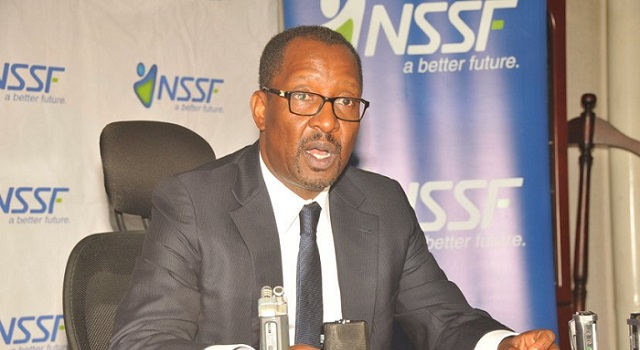
Kampala, Uganda | THE INDEPENDENT | The National Social Security Fund forecasts it will pay members less than 10 percent interest down from the double-digit interest rate that it has paid over the last several years after their operations were adversely affected by the COVID-19 pandemic.
The final interest rate is announced by the Minister of Finance, Planning and Economic Development.
Last year, it dropped to 11 percent from 15 percent of the previous year.
The fund says that the economic downturn in Uganda and the other East African countries due to the pandemic affected both the two last quarters of the year 2019/2020.
Apart from investing in real estate projects, government bills and bonds, as well as companies, the fund has invested in stocks through the Uganda, Kenya and Tanzania stock markets.
Uganda’s economy reportedly contracted by 3.2% in the second quarter of 2020, while economic growth projections dropped to between 3 to 4.0%. Before the outbreak, the economy had previously been forecast to grow above 5%.
“In addition, we were also affected by the Uganda currency movement in relation to other major currencies and the directive by the Central Bank to hold back dividend payments by commercial banks,” says Richard Byarugaba, NSSF managing director. “All combined to affect the Fund’s performance last Financial Year.”
In spite of the economic downturn and the effect on its operations, the Fund’s assets under management registered a 17% growth from 11.3 trillion in 2018/2019 to 13.38 trillion shillings in 2019/2020. With this according to Richard Byarugaba, the fund is sure it will achieve the target of an asset base of 20 trillion shillings by 2025.
Not surprisingly due to the COVID-19 pandemic, member contributions increased and a rate lower than before COVID-19 struck by only 5% or 600 million shillings to 1.28 trillion, the lowest increase in almost a decade. This was attributed to the amnesty offered by the government to businesses that were affected by COVID-19 pandemic and about 22 billion shillings was deferred.
Surprisingly though, there was only a marginal increase 8% in the benefits paid to qualifying members during the period despite the economic hardships in the second half due to the Covid-19 pandemic.
These grew from 450 billion to 486 billion shillings.
This comes amidst calls on government, courts and parliament to force NSSF to allow savers access their benefits without waiting for the terms and conditions set by the current laws.
Byarugaba says the marginal growth was because members became cautious and decided to leave their benefits as safe as possible instead of withdrawing them.
Following the decline in revenues from most of their investment areas, the NSSF has appealed to the government to allow it invest in markets outside East Africa for purposes of diversification. The MD says it is evident that investments are riskier when made either in one market or similar markets like the East African countries.
******
URN
 The Independent Uganda: You get the Truth we Pay the Price
The Independent Uganda: You get the Truth we Pay the Price



